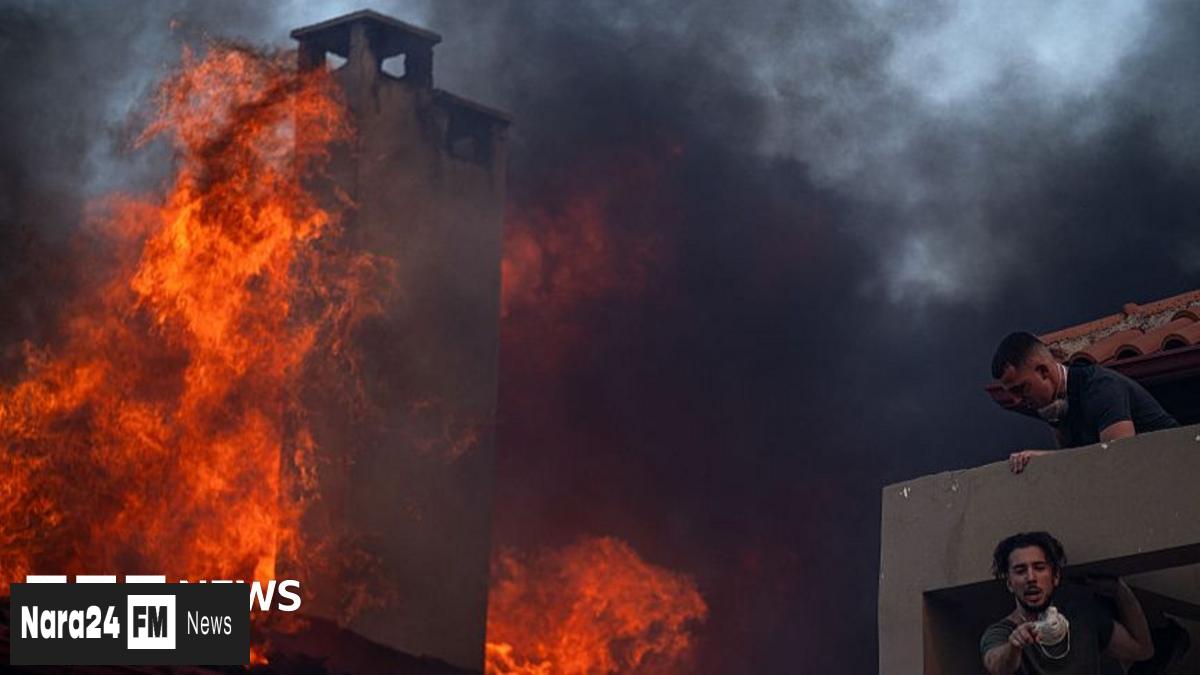
Greece's Unrelenting Wildfires Spark EU Aid Plea Amid Record Heatwave
Over 1,000 firefighters and 15 aircraft are deployed across Greece as temperatures soar to 44°C, with EU backup now en route to tackle infernos threatening homes and ecosystems.
Over 1,000 firefighters and 15 aircraft are deployed across Greece as temperatures soar to 44°C, with EU backup now en route to tackle infernos threatening homes and ecosystems.

Greece's firefighting forces are engaged in a multi-front battle against wildfires exacerbated by record-breaking heat, with temperatures predicted to peak at 44°C (111°F) on July 27, 2025. The Civil Protection Agency has activated the EU Civil Protection Mechanism, requesting six additional aerial firefighting units to augment local efforts.
- **Kythira Island**: A blaze originating in Pitsinades village has consumed over 1,200 hectares, with evacuation orders issued for Venetianika and Pitsinades. Fire crews deployed water-dropping aircraft and 67 ground firefighters to contain the inferno. - **Evia Peninsula**: A second major fire near Pissona has displaced 500 residents, with strong winds creating ember spread risks. Six firefighters sustained injuries battling this front. - **Messinia Region**: A weekend blaze destroyed 47 homes and 800 hectares of farmland, prompting emergency water rationing in affected municipalities. - **Attica District**: Athens suburbs remain under threat after a fire swept through Drosopigi, damaging 15 structures and forcing temporary school closures.
Turkey reported its highest-ever temperature of 50.5°C (122.9°F) in Silopi province on July 26, coinciding with a four-day firefight in Karabuk that left 10 firefighters dead. This follows Greece's July evacuation of 5,000 tourists from Crete during a 48-hour wildfire that razed 4,700 hectares.
Authorities report 35% containment on Greece's three primary fire fronts, though Vasilios Vathrakoyannis, Fire Brigade Spokesperson, warns: "Wind speeds averaging 45km/h are creating ideal conditions for spot fires." The EU has mobilized 12 aerial units from five member states, with the first C-130 water bombers due to arrive Monday.
Minister Giannis Kefalogiannis emphasized systemic risks: "This isn't just about灭火器 (fire extinguishers) - we're witnessing climate patterns that could redefine Mediterranean summers." Satellite imagery shows cumulative losses of 8,200 hectares since July 1, with 43% of Greece's agricultural districts now classified as "extreme fire risk."
Residents in affected zones report compromised emergency services, with 12 municipalities experiencing power outages exceeding 72 hours. The Red Cross has established five emergency distribution centers, providing 3,000 liters of drinking water daily to displaced populations.
"While main fire lines show stabilization, 27% of active blazes remain uncontrolled. We're operating under maximum alert conditions until Friday."
This unfolding crisis arrives as the UN Environment Programme issues a new report warning that Mediterranean heatwaves could triple in frequency by 2030, underscoring the interconnectedness of regional environmental stability.
Comments (0)
Leave a Comment
Be the first to comment on this article!